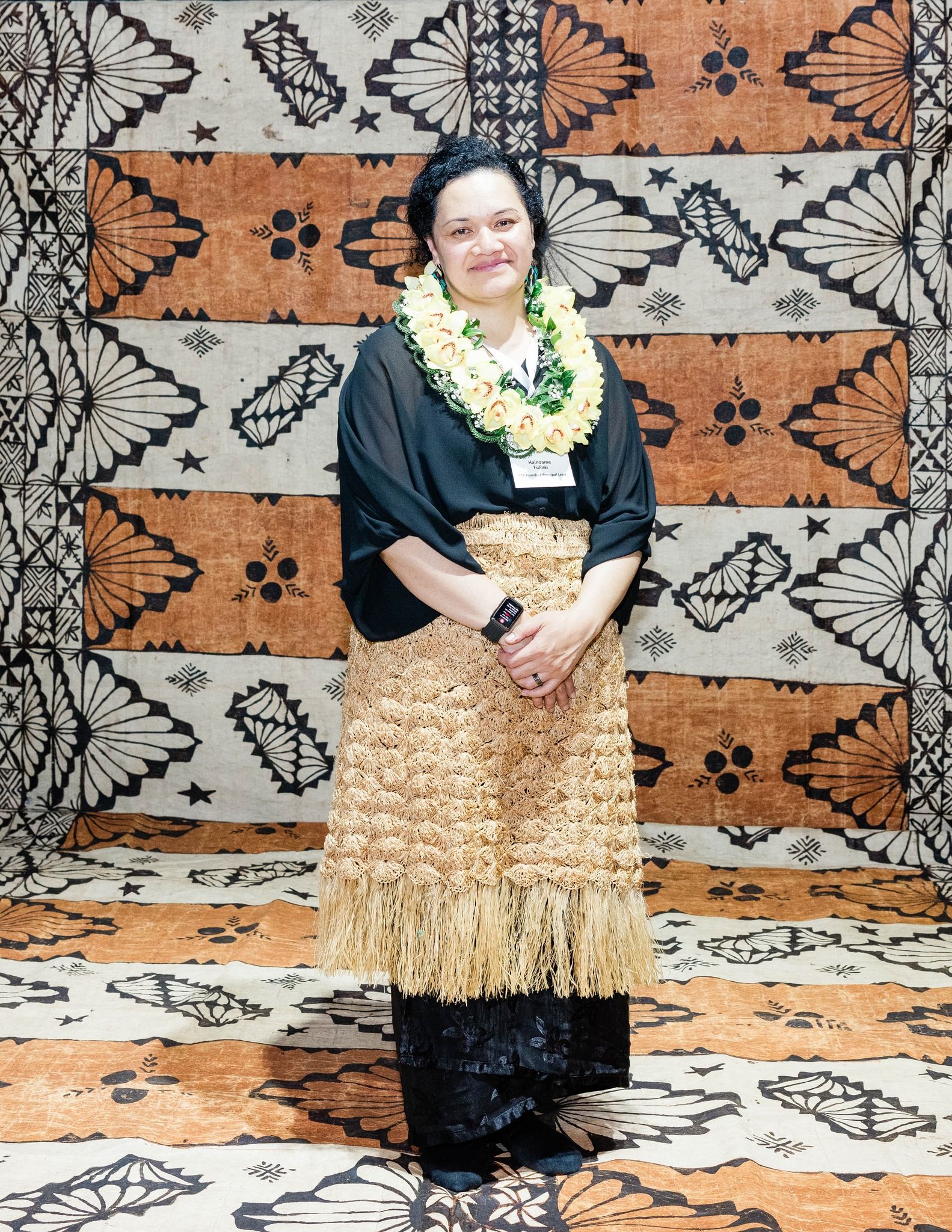

Tapa Talanoa Collective founder Hainoame Fulivai collecting discarded mats from Tāmaki Zero Waste Hub.
Supplied
Tapa bound for the tip gets second chance
The Tapa Talanoa Collective is partnering with Tāmaki Zero Waste Hub to collect discarded ngatu and save it from being scrapped.


Hawaiian delegation stands with Māori at Waitangi gathering


Tangata Whenua, Tagata Moana: The Sovereignty of Service

Waitangi in Pictures: Pōhiri to politicians as protests held at bay

Hawaiian delegation stands with Māori at Waitangi gathering


Tangata Whenua, Tagata Moana: The Sovereignty of Service
One person’s trash can be another’s koloa (treasure), thanks to a group of Pacific women who are rescuing tapa and fine mats from going to the dump.
Tāmaki Zero Waste Hub has partnered with Tapa Talanoa Collective to rescue and repurpose traditional ngatu which was destined for landfill.
Group founder Hainoame Fulivai says they didn’t know what to expect at their first retrieval earlier this month.
“I was expecting non-authentic tapa to come through, that’s probably the most common type that women are using right now, but when my daughter and I went through to see the items that the team had rescued, we actually had authentic, real, traditional tapa, real ngatu.
“What we have picked up is Fuatanga Toka Hongofulu, which is about a 10-foot type of ngatu with a double layered real ngatu made in Tonga, and at the same time, we’ve picked up three large pieces of ie toga, these are Sāmoan fine mats.”
Speaking to William Terite on Pacific Mornings, Fulivai said traditional mats can take 6-12 months to complete and have strong cultural worth and meaning.
“Authentic ngatu is made by 100% plant-based materials, and that’s been done indigenously for centuries, and women will actually measure and produce these items using indigenous metrics, ways of measuring how wide, how large the size of ngatu might be.”
Rescue Mission
Tāmaki Zero Waste Hub reuse supervisor Guilio Laura said honouring cultural guidelines is important and connecting with relevant groups is part of their kaupapa.
"We are committed to preserving cultural heritage by intercepting valuable cultural items like tapa cloths, pounamu, and patu before they reach the landfill.
"When such items arrive at our site, they are often blessed and taken offsite to be reworked, gifted, mended, and restored, ensuring the preservation of both the material and its cultural significance."

Tapa Talanoa Collective founder Hainoame Fulivai at the Ngatu conference in 2023. Photo/Supplied
Price point
The price of tapa can range from hundreds of dollars to tens of thousands, but Fulivai said the value is difficult to quantify in modern terms, as they are often used as gifts for important occasions or passed on as family heirlooms.
“These days we use monetary value to exchange these items, but it was a relational and very intimate process.”
University of Auckland Pacific Studies senior lecturer Dr Melenaite Taumoefolau said tapa also have great historic value.
"Queen Sālote said that Tongan history is not written in books, but mats.
"Some fine mats were made over a hundred years ago in Sāmoa and brought to Tonga as symbols of chiefly lines in Sāmoa from which royal Sāmoan brides descended.
"Chiefly Sāmoan women were brought to Tonga to marry paramount Tongan chiefs in the eighteenth century or earlier over several generations.
"If you own a Sāmoan fine mat, it is not sold, because it is priceless."
Taumoefolau said mats are usually made to be presented or gifted in special occasions.
"There is no such thing as 'no longer needing it' ... they stay with someone only until the next special occasion or until they pass then someone else takes it and keeps it until they pass and so on, it just keeps on circling."
Restoration and new life
The Tapa Talanoa Collective has folded and stored the mats, ready to be inspected and officially received by elders in the group.
“We’re going to put it to the women to discuss how that will circulate and give it new life, and we want to rebirth these items, we can absolutely reuse them in our communities,” said Fulivai.
“That was the practice that we all grew up with with our elders, restoration and repairs, very normal to a lot of our women.
“Putting it forward to formal functions as a reused item is going to give new life to these koloa (treasures).”
Watch the full interview with Hainoame Fulivai on Pacific Mornings: